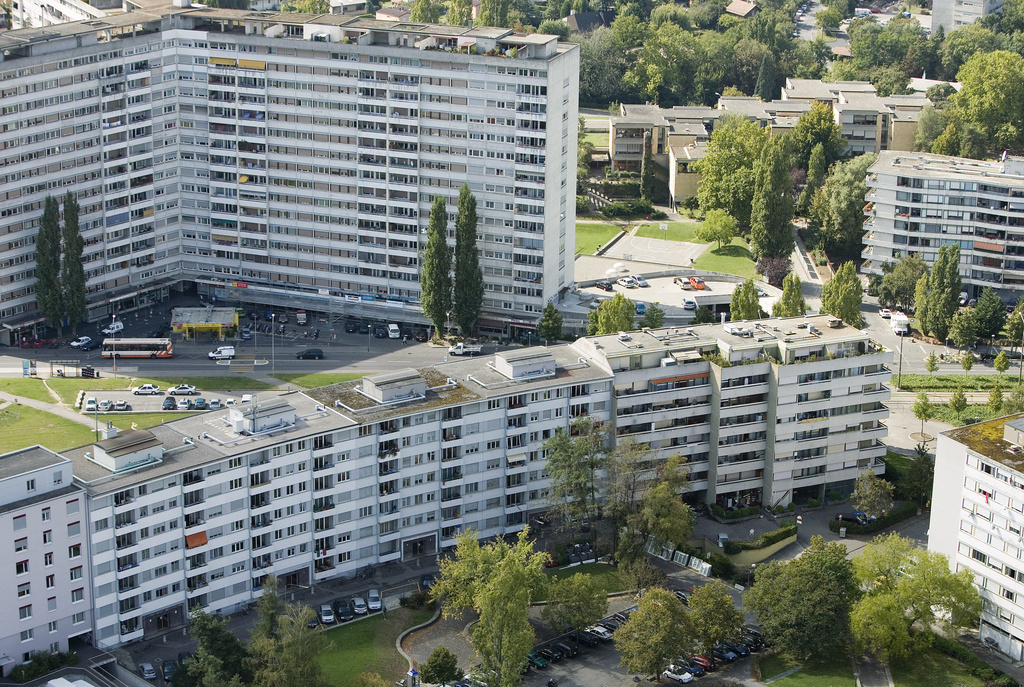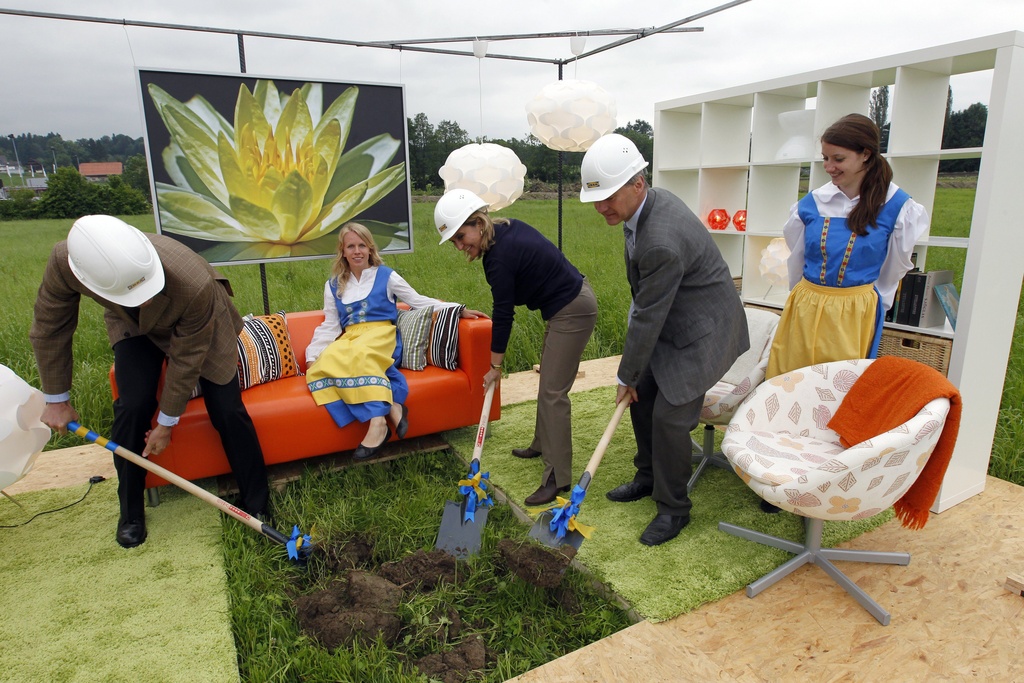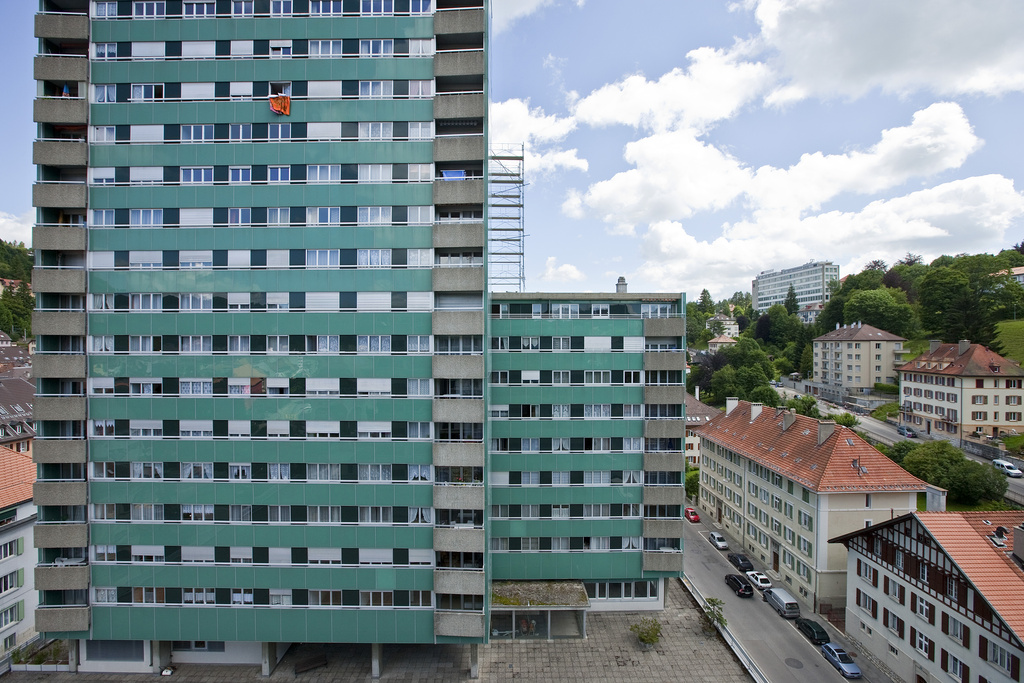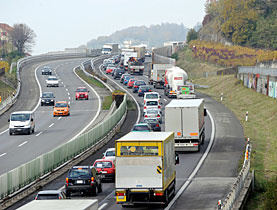Geneva struggles to attract foreign business

Geneva may be an international player in the big city stakes but its economic chief has admitted that it does not have room for any more large companies.
The city has been at a housing and transport standstill for years, and without the necessary infrastructure Geneva could not cope with a large influx of people, should a major firm want to relocate there.
“We would hesitate to welcome a company with more than 5,000 employees, because we would not know where to house the employees and their families,” Pierre-François Unger, head of Geneva canton economics department, told a news conference this week.
Irrespective of the fact that no company of that size has settled in Switzerland of late – the average large company brings 300-1,000 employees – Unger’s remarks highlight the need for cantons to start working together to lure big-name firms to the country, experts say.
Unger made the remarks while introducing a study into economic policies in canton Geneva over the past five years. The research by the Crea Institute of Applied Macroeconomics in Lausanne found the number of foreign companies moving to Geneva had dropped by 52 per cent from 2005 to 2009.
In contrast Geneva’s neighbour, canton Vaud, appears to be flourishing. On Thursday Yahoo starts work on a new data centre in Avenches and on Wednesday American food giant Kraft inaugurated a new research and development centre in Eysins, near Nyon. Earlier this year British drugmaker Shire opted for Eysins over Geneva.
Looking to the long term, the Crea institute researchers recommended Geneva rely less on the “volatile” financial sector (23.5 per cent of its GDP in 2009) and strengthen its biotech and watchmaking sectors. Unger added that the canton needed to focus on building housing, improving transport and making industrial zones denser.
A common front
Looking at it from a different angle is the Greater Geneva Bern Area association (GGBa), set up in January to promote the western Swiss region covering Geneva, Fribourg, Vaud, Neuchâtel, Valais and Bern as a place to do business.
“Very often there are projects that Geneva cannot attract perhaps because of a lack of space. But in other cantons there’s all the space you could want,” Philippe Monnier, GGBa executive director, told swissinfo.ch.
One way of accommodating a large company can be a communal project. Alcon for example works out of Geneva and Fribourg.
“When we go abroad we try to create the image of a region. Certain cantons are very well known. Geneva is very well known and will stay that way. And to a certain extent that image of Geneva is a trump card for our association. But all the other cantons have incredible assets too. When we present them to companies they incite a lot of interest.”
By joining forces, the GGBa cuts down on costs for networking, Monnier explains. “It’s better to bring it all together and put forward a common front. For the first part we are together, we’re in the same brochures, on the same website. But in the final stage, cantons we represent sometimes compete against each other.”
The Greater Zurich Area does the same for member cantons Aargau, Graubünden, Schaffhausen, Schwyz, Zug and Zurich.
“Silly” competitiveness
Martin Naville, CEO of the Swiss-American Chamber of Commerce, says he has been pushing for such cross-cantonal cooperation for the past six years.
In line with Switzerland’s federal system, each canton usually is responsible for attracting business to its region, while it is the job of the national body Osec to help companies from Switzerland to develop and expand their activities abroad.
“It’s absolutely silly this canton against canton. How can you fight for American companies or Chinese companies if you come as a canton? Nobody knows the cantons,” he told swissinfo.ch.
He said Switzerland needed a central agency like the Irish or Singapore development agencies, which help companies find the right home, cut through red tape and move in quickly. While there have been moves to give Osec more money and competence, it is not yet enough and the onus remains on the cantons, he said.
To compare, Switzerland Tourism promotes tourism nationally with a budget of around SFr60 million ($62 million), more than the cantons spend. But to promote business, cantons spend SFr35-40 million and the government spends around SFr5 million, he notes.
“The Swiss political system is very difficult in this question because we are very federalist. Being federalist has had a lot of advantages but in this it is a disadvantage.”
The Crea Institute of Applied Macroeconomics found 70% of the cantonal economy could be divided into four fields:
The finance sector had grown from 20.2% to 23.5 of GDP% in 10 years.
Commerce remained stable with 15% among business services, 11.2% in computers, public services at 21.9%.
Chemicals grew from 1.8% to 2.5% and watchmaking from 2.9% to 3.7%.
Among the sectors in decline are machinery from 2% to 1.6%, construction from 4.2% to 3.8%, hotel and catering from 2.9% to 2.4%, and other industries from 3% to 2.5%.
Crea recommends strengthening watchmaking and biotech industries and “doing everything possible” to biotechnology and medical technology in the region, as well as developing cross-cantonal cooperation.
Crea also points to a problem with housing and mobility and a lack of risk capital for start-ups and “psychological barriers” with international organisations present in Geneva.
Switzerland has for years sought to attract global firms by offering competitively low corporate tax rates.
Swiss cantons that set their own rates compete to attract European headquarters or holding companies within their borders. Smaller cantons, such as Zug or Schwyz, have been particularly successful with their campaigns.
However, Switzerland’s system of tax competition – effectively undercutting the rates of neighbouring countries – has drawn criticism from the European Union.
The EU considers the practice to be in violation of a 1972 free trade agreement signed between the European bloc and Switzerland. The Swiss have denied this is the case, but the row rumbles on despite a lull in proceedings in the past year.

In compliance with the JTI standards
More: SWI swissinfo.ch certified by the Journalism Trust Initiative




You can find an overview of ongoing debates with our journalists here. Please join us!
If you want to start a conversation about a topic raised in this article or want to report factual errors, email us at english@swissinfo.ch.